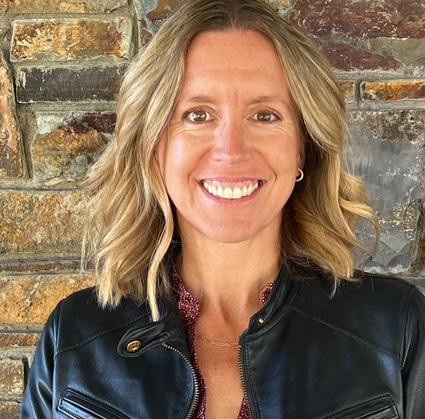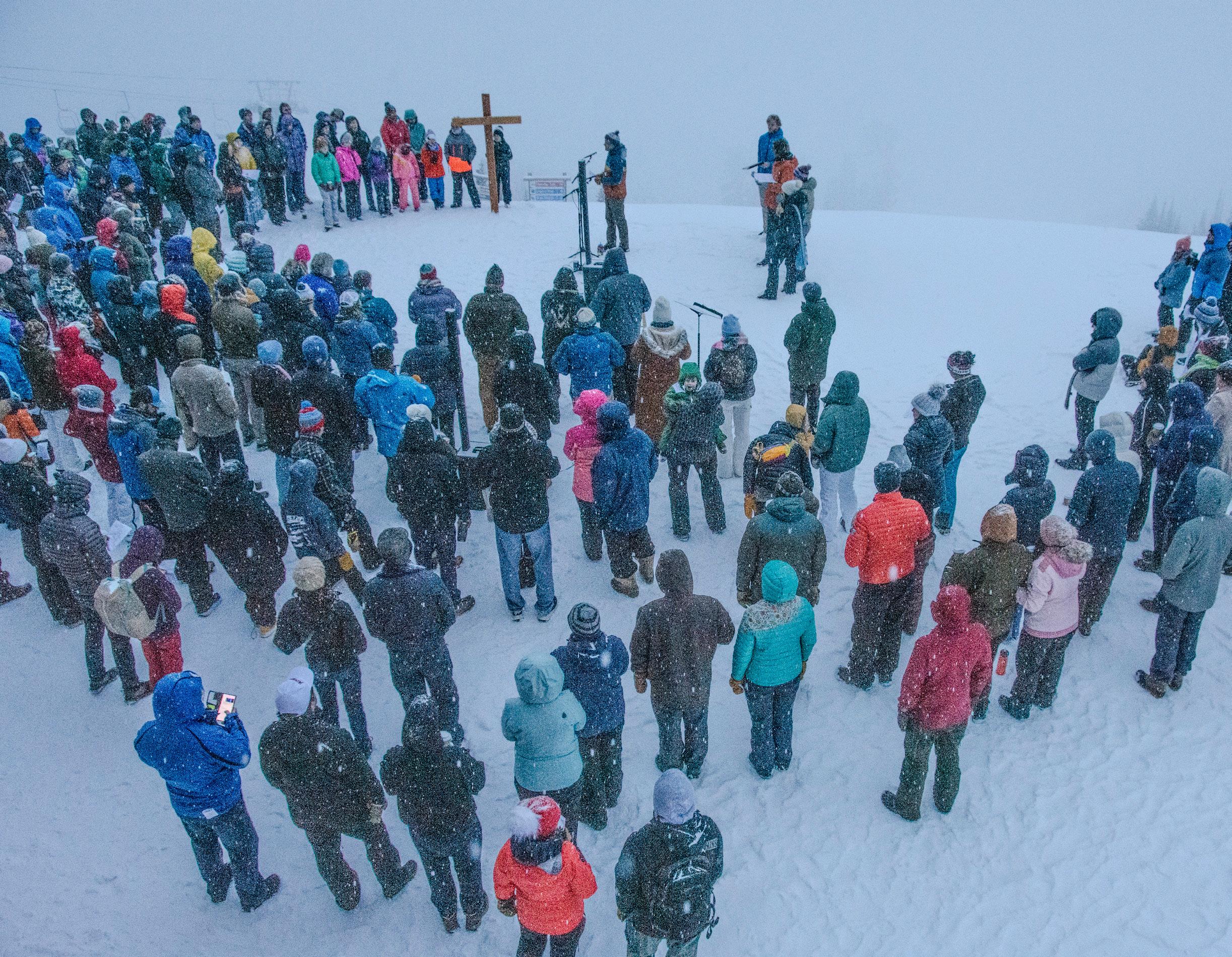






Presbyterian Churchof Jackson Hole ~ QUARTERLY NEWSLETTER | VOLUME NO 25
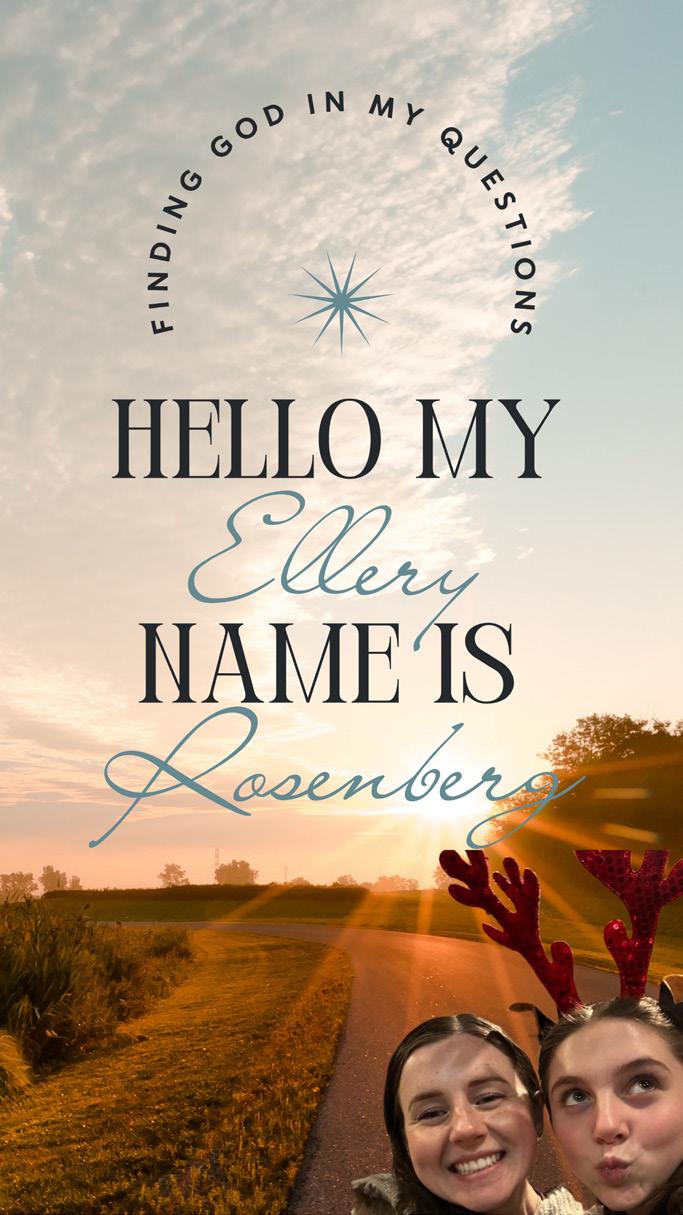
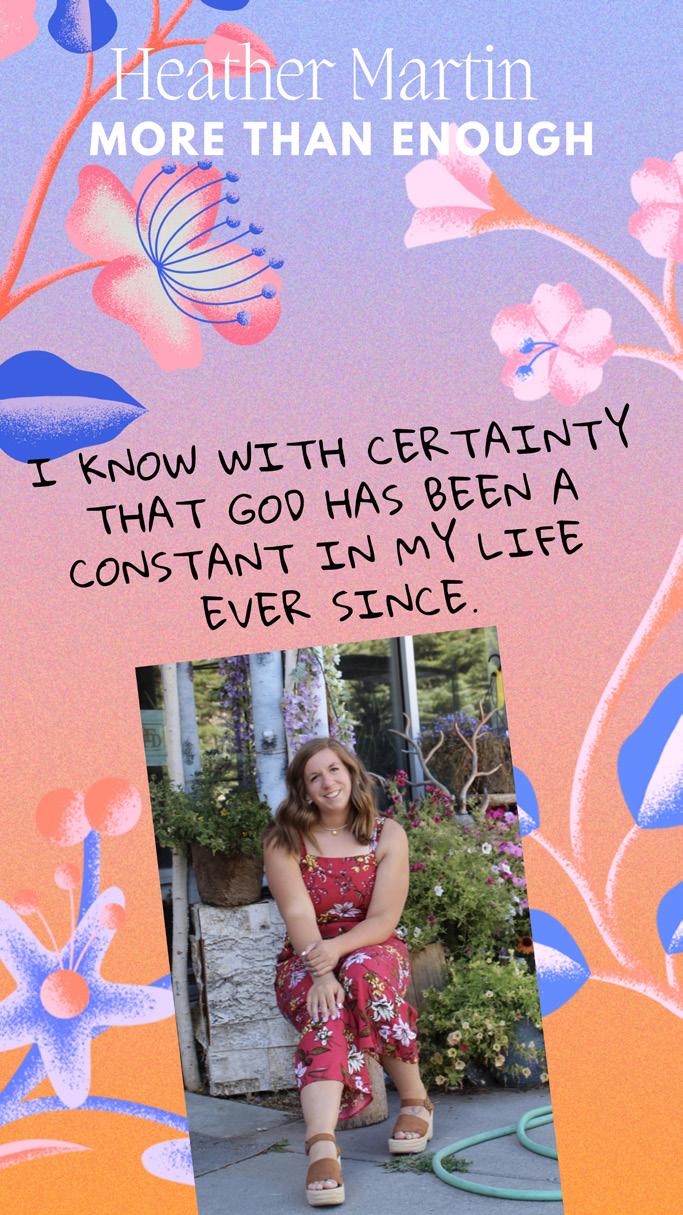
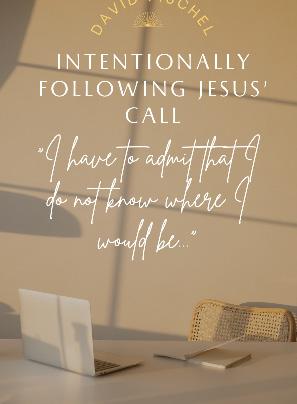
Presbyterian Church of Jackson Hole ~ QUARTERLY NEWSLETTER I VOLUME NO 18
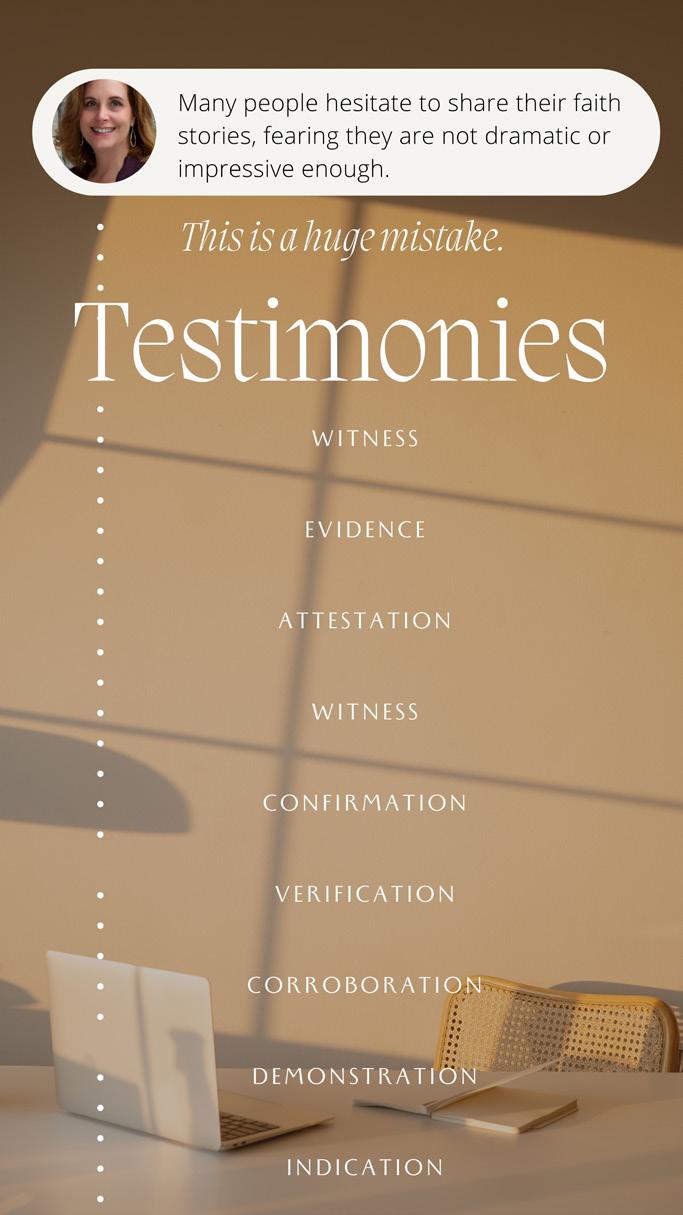
WINTER / SPRING 2025
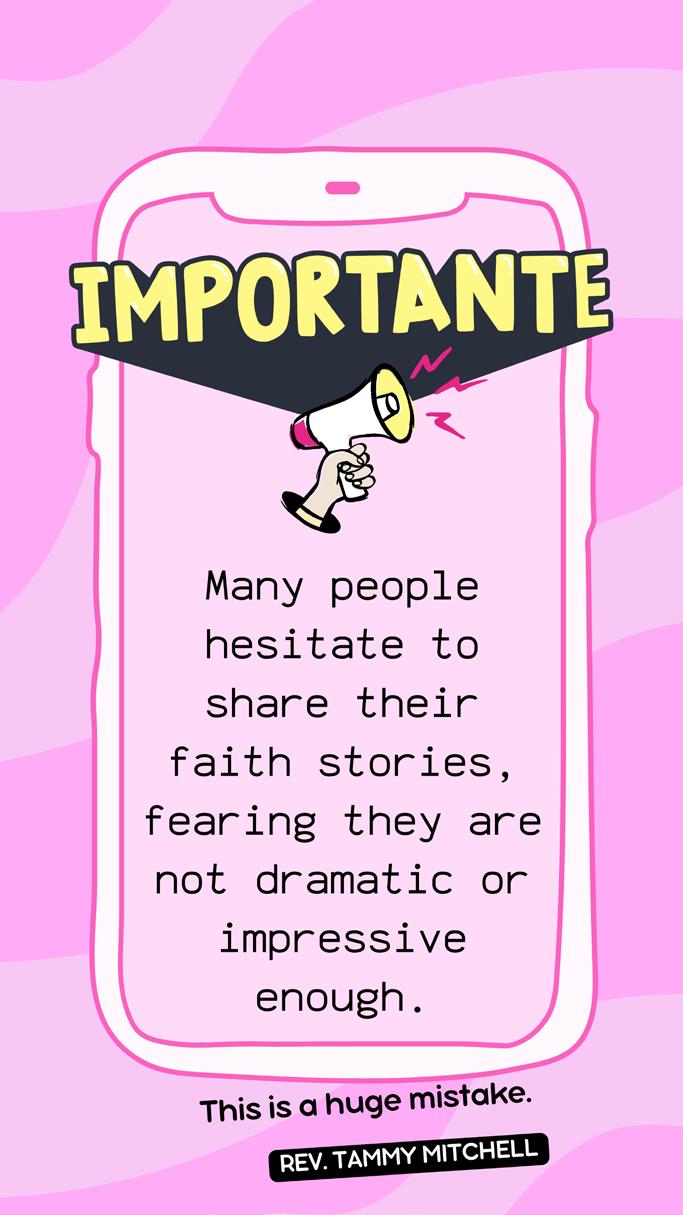
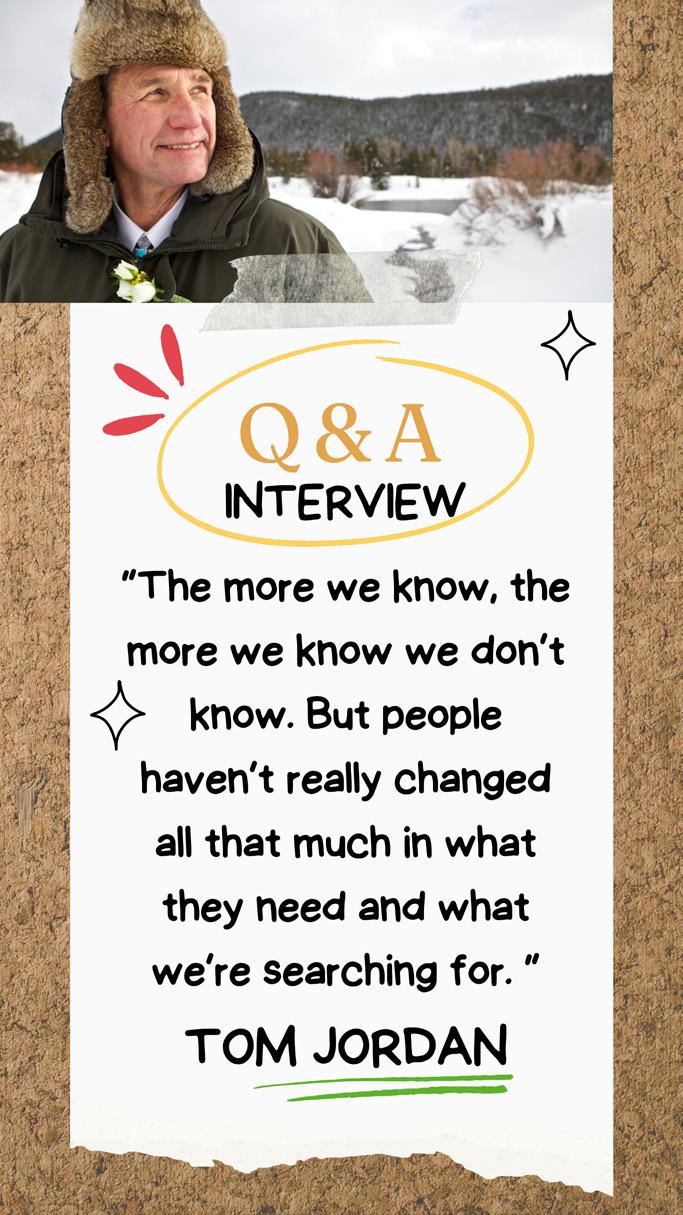
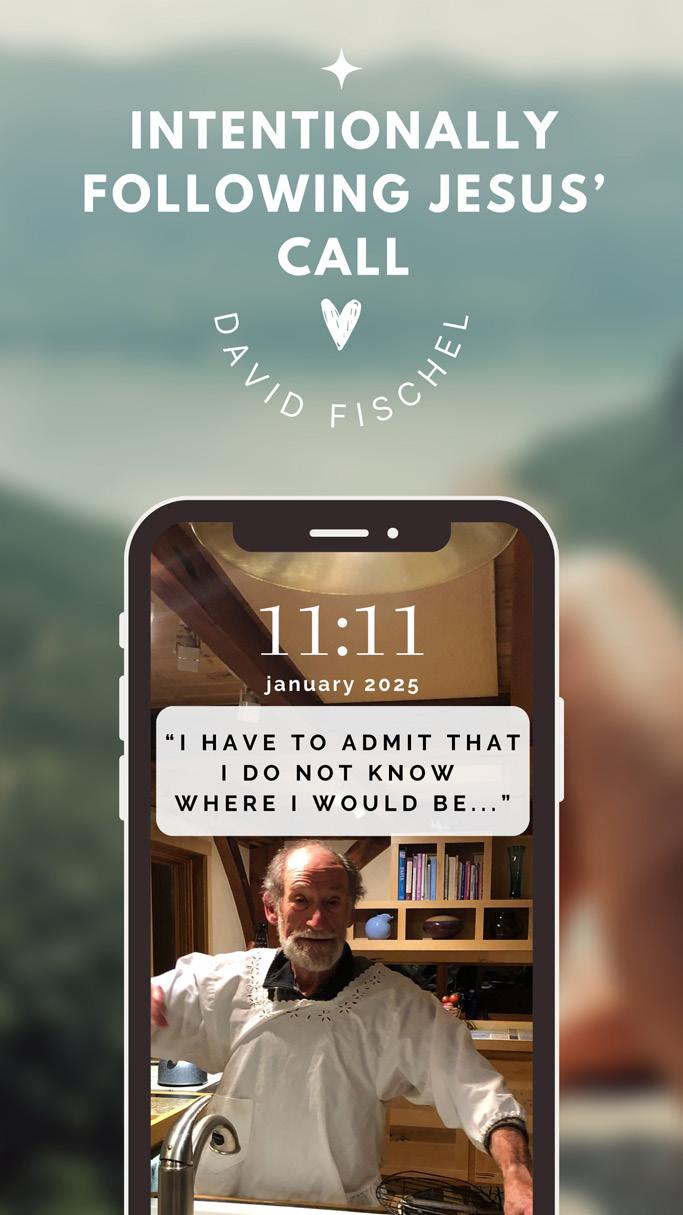
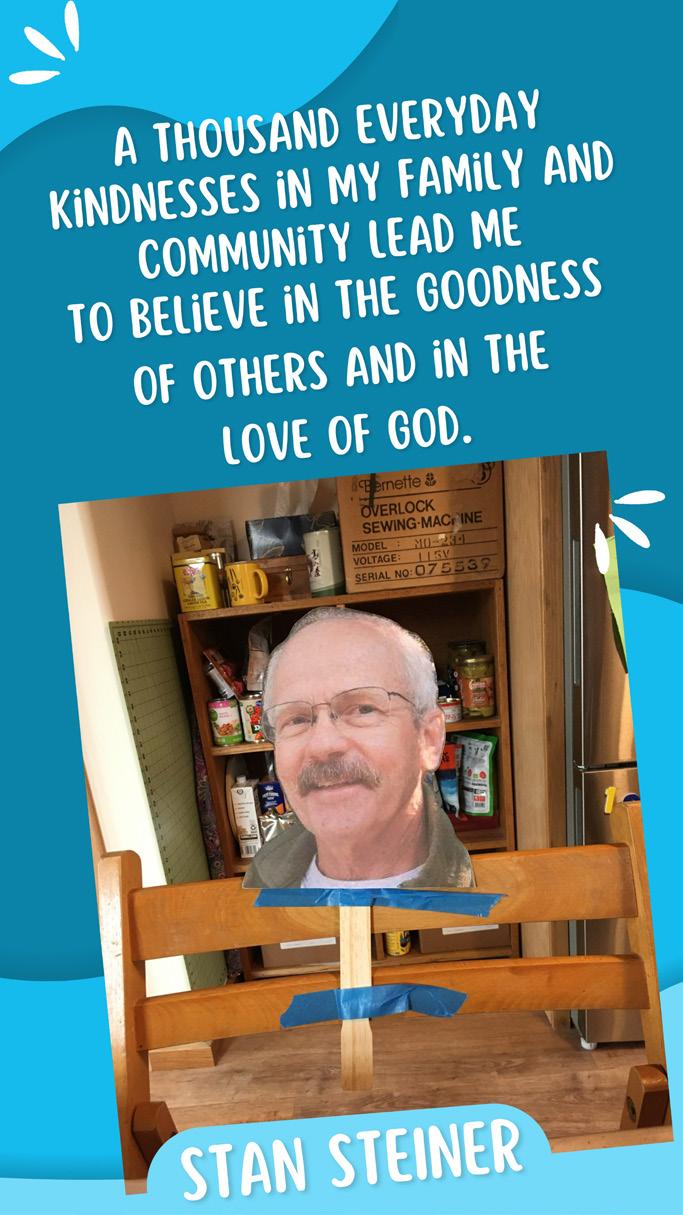
TO BE A COMMUNITY, ROOTED IN CHRIST, REACHING OUT
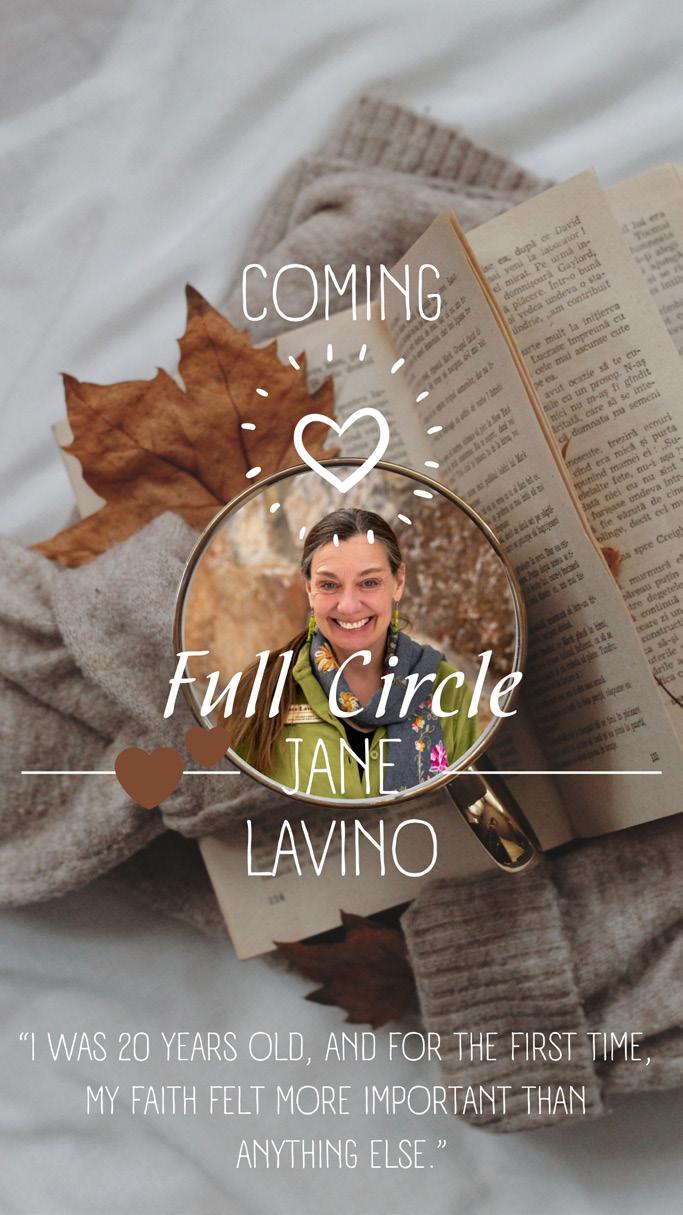

Presbyterian Church of Jackson Hole ~ QUARTERLY NEWSLETTER I VOLUME NO 18
If you’ve ever sung the favorite hymn ‘Come Thou Fount’ you may have puzzled over the line, ‘Here I raise my Ebenezer.’ Ebenezer? What is that? The word comes from 1 Samuel and references a stone erected by Samuel to give the Israelites a visual remembrance of all the help that God had provided up until then. Like an Ebenezer, our individual testimonies give us something concrete to look at and re-remember how God has helped us until now. In this Pinnacle issue, we are reminded that God works in all of our lives in ways from the subtle to the dramatic. And that turning back to see how far he’s led us helps us remember just how faithful our God is.
“Great are the works of the Lord; they are pondered by all who delight in them." ~ Psalm 111:2
TUESDAYS
7:27am Youth Group (MS & HS)
WEDNESDAYS
4-6pm THE FUN CLUB K-5th grade 6-7pm Community Dinners 7-8pm Choir Rehearsals
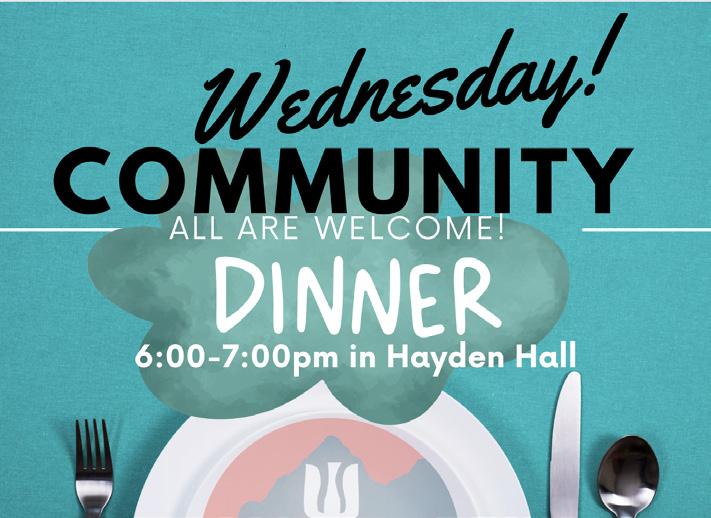
SUNDAYS 10:15am Youth Sunday School 2 pm X-Country Ski Group
9 am New Pathfinders adult class begins: “Body and Soul” 5:30 pm Ascent Bible Study
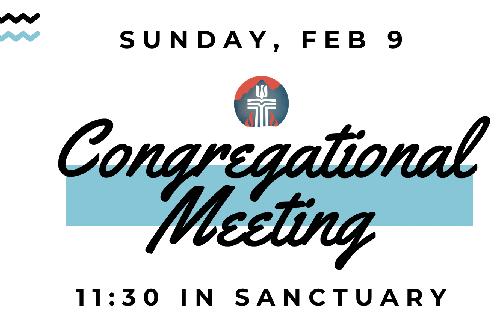
~ ‘GALENTINE’S EVENT (MS & HS Girls Event)
~ President’s Day, office closed
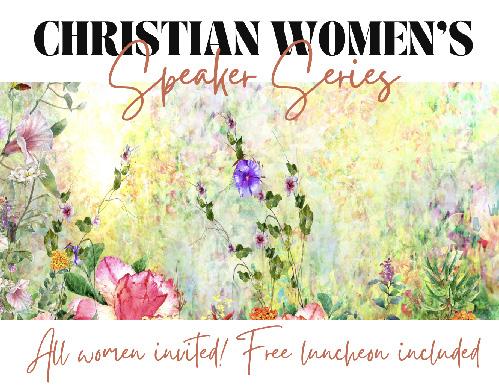
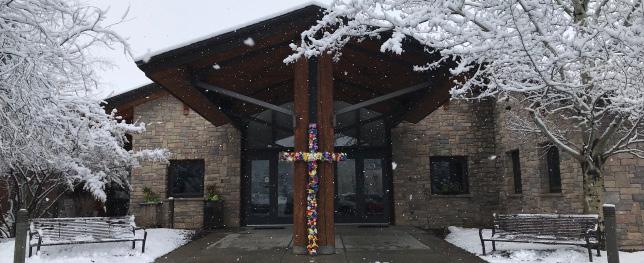
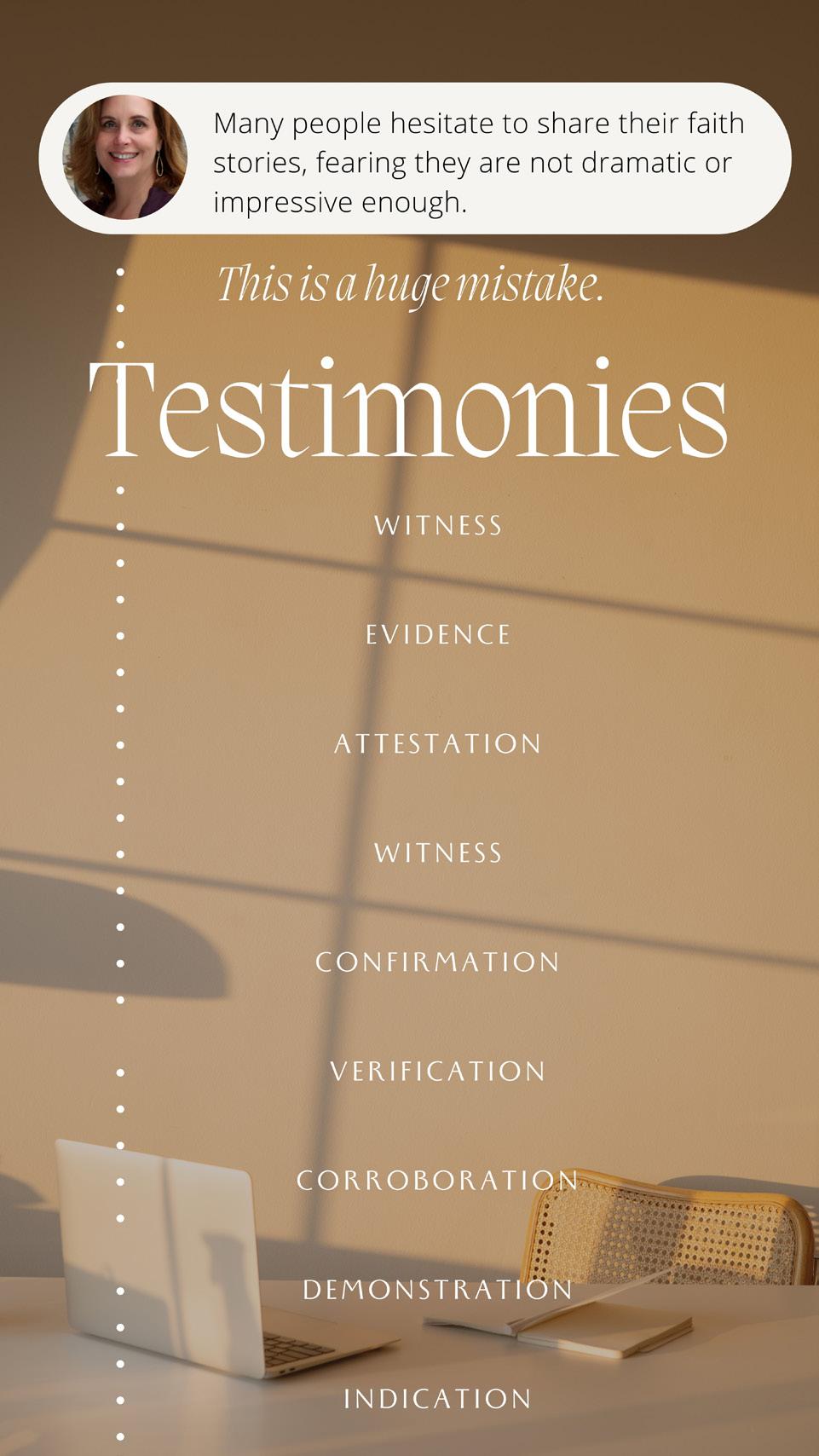
PASSING ON THE FAITH
Like many families, one of the traditions we had as a family was a bedtime story. Every night, my girls would pick out a story they wanted me to read and, after getting ready for bed, we would nestle together and commence with the story. More times than not, the storybook they chose was something they had read multiple times. Yet, even though they had heard the story many times, they couldn’t wait to hear it again. Whether it was “Goodnight Moon”, or “Where the Wild Things Are”, or “The Lion, The Witch and the Wardrobe”, they wanted it read to them over and over again. Those stories became precious and had an enduring impression on them. Even to this day, they remember the stories and how they brought them comfort and joy.
Stories play a significant role in our lives. They shape who we are and how we see the world. They connect us to others and build bonds of shared experience and understanding. For Jesus’
followers, the stories of our faith hold even deeper significance. They are more than just narratives; they are the means by which we pass on the truths of our beliefs, the testimony of God's work in our lives, and the hope of the Gospel.
In Deuteronomy 6:4-9, the Israelites are instructed to teach God’s commandments to their children. “Impress them on your children. Talk about them when you sit at home and when you walk along the road, when you lie down and when you get up.” This passage stresses the importance of telling the stories of God’s faithfulness and passing them on to the next generation. Passing on our faith is not a task to be taken lightly; it is a sacred responsibility.
One of the most compelling ways to pass on the faith is through personal testimony. Presbyterians are not necessarily known for being people who share a testimony, which, in my humble opinion, is to our detriment. Perhaps we have attended other churches where sharing testimonies plays a central role in the worship services. Testimonies have real power. When we share how God has worked in our lives, we share the mystery of how the almighty God becomes intimately involved in our lives. Personal stories of transformation, answered prayers, and moments of divine intervention inspires and encourages all of us in our own spiritual journeys. As Frederick Buechner wisely said, “To be a Christian is to be a storyteller of grace.” Our stories testify to God’s ongoing work, showing others that God’s grace is alive and active today. Consider the Apostle Paul. After walking among the ruins of Greece and Rome, I was once again awestruck at the power of Paul’s words as he shared about Jesus. Not only were personal lives changed but entire communities, cultures, and ultimately the world was no longer the same. Can you imagine what would have happened if he or any of the disciples decided not to share about Jesus? But they couldn’t keep quiet. The news was too good and Jesus was too real. Their stories as well as every person’s story since then are incredibly powerful tools in spreading the Gospel, so that all might know the transformative power of God's grace in Christ. They were not sharing their testimonies because it was a good thing to do. They were sharing their stories because they could not do anything but that. The love of God in Jesus is Good News. We cannot overstate how our stories serve as a welcomed bridge, connecting others to the reality of God’s love and faithfulness. Remember Jesus' final words to us in Matthew 28:1920, “All authority in heaven and on earth has been given to me. Therefore go and make disciples of all nations, baptizing them in the name of the Father and of the Son and of the Holy Spirit, and teaching them to obey everything I have commanded you. And surely I am with you always, to the very end of the age.”
"The stories we tell have the power to shape not only the present but also the future."
Stories are also a way of continuing a rich faith tradition. When we recount the ways God has been faithful to us, we create a spiritual heritage for those who come after us. This is particularly important in families, where the faith stories of parents and grandparents can profoundly impact children and grandchildren. I had the privilege of growing up with parents who knew and loved Jesus and shared with us as kids every day. We had prayer times together, memorized Scripture at the breakfast table, and learned the great hymns of the faith. My parents also introduced me to missionaries, and gave me books about the faith to read. When I look back on my upbringing, I know I am blessed beyond measure in learning what it meant to walk with Christ, even from a young age.
Knowing that their family has a history of trusting in God can give young people a sense of belonging and a foundation for their own faith. Billy Graham once said, “Grandparents, be sure to pass on your testimony. Let your grandchildren hear the stories of what God has done for you.”
Faith stories create a chain of testimony that links generations together. I think of the biblical example of Timothy, who was influenced by the faith of his grandmother Lois and his mother Eunice in 2 Timothy 1:5. Their stories of faith undoubtedly shaped Timothy and prepared him for his role in the early church. Similarly, our stories can inspire and equip the next generation to live out their faith boldly.
Plus, it doesn’t just happen in the biological family but also in the family of faith, namely the Church. One of the great gifts we have as people of faith are the stories of those who have gone before us, and have laid a path of rich teachings, creeds, confessions, and doctrines that have become foundational in our understandings of what it means to be the Church of Jesus Christ. As an unashamed Presbyterian, I am incredibly grateful for the powerful ways in which the giants of faith have enriched my own relationship with Christ; people like C.S. Lewis, John Calvin, Martin Luther, Joyce Rupp, Lauren Winner, N.T. Wright, Dietrich Bonhoeffer, Billy Graham, Eugene Peterson, and Bob Mitchell (my dad), just to name a few.
Many people hesitate to share their faith stories, fearing they are not dramatic or impressive enough. They hope that they can just “let their life speak for itself.” This is a huge mistake. Jesus did not just “let his life speak for himself.” Paul did not just “let his life speak for himself.” Neither did Peter, or James, or John. Words matter. Words are the way we communicate. Parents use words to help guide their children. Instructors and coaches use words to educate. Politicians use words to influence. We use words because
that is the central way we communicate with one another. Stories require words. Our faith stories require words. Each testimony has the potential to touch someone’s heart and we use words to do just that.
Many people get fearful because they feel they don’t know what to say or they won’t say “it” right and turn people off. We need to remember that sharing about Jesus is not about presenting a polished or perfect sermon. Our authenticity is what matters most. When we share our struggles, doubts, and imperfections alongside our joys and blessings, we communicate to others that faith is an ongoing journey - a walk with our Lord. This honesty can be incredibly encouraging to those who may feel their own faith is inadequate or incomplete.
The stories we tell have the power to shape not only the present but also the future. When we share our faith stories, we participate in the ongoing work of God’s Kingdom. We plant seeds of hope, encouragement, and conviction that can bear fruit in ways we may never fully see or understand. God is at work in us, and that work is good, holy and important. The Christian faith, while always personal, is never private. The faith we have is not intended for us alone. The news is too good not to be shared with others.
In Revelation 12:11, we read that believers overcame the enemy “by the blood of the Lamb and by the word of their testimony.” Our stories are not just meaningful; they are powerful. They testify to the reality of God’s love, forgiveness, reconciliation, and God’s work in the world. They remind us and others of His faithfulness, His goodness, and His unchanging promises. Howard G. Hendricks observed, “Faith is caught more than it is taught.” When we share our stories, we allow others to witness faith in action, inspiring them to trust God in their own lives.
So, let us not keep our stories to ourselves. Let us tell them boldly and often, trusting that God will use them to draw us and others closer to Jesus. Just as the bedtime stories we read to our children became cherished memories, the stories of our faith can leave an enduring history, inspiring and encouraging generations to come. In sharing our stories, we fulfill the call to pass on the faith, ensuring that the light of Christ continues to shine brightly in the world. ✝
REV. TAMARA MITCHELL
Serves as PCJH Associate Pastor. She has two married daughters, and a dog named Charlie.
~ Brian Bultema
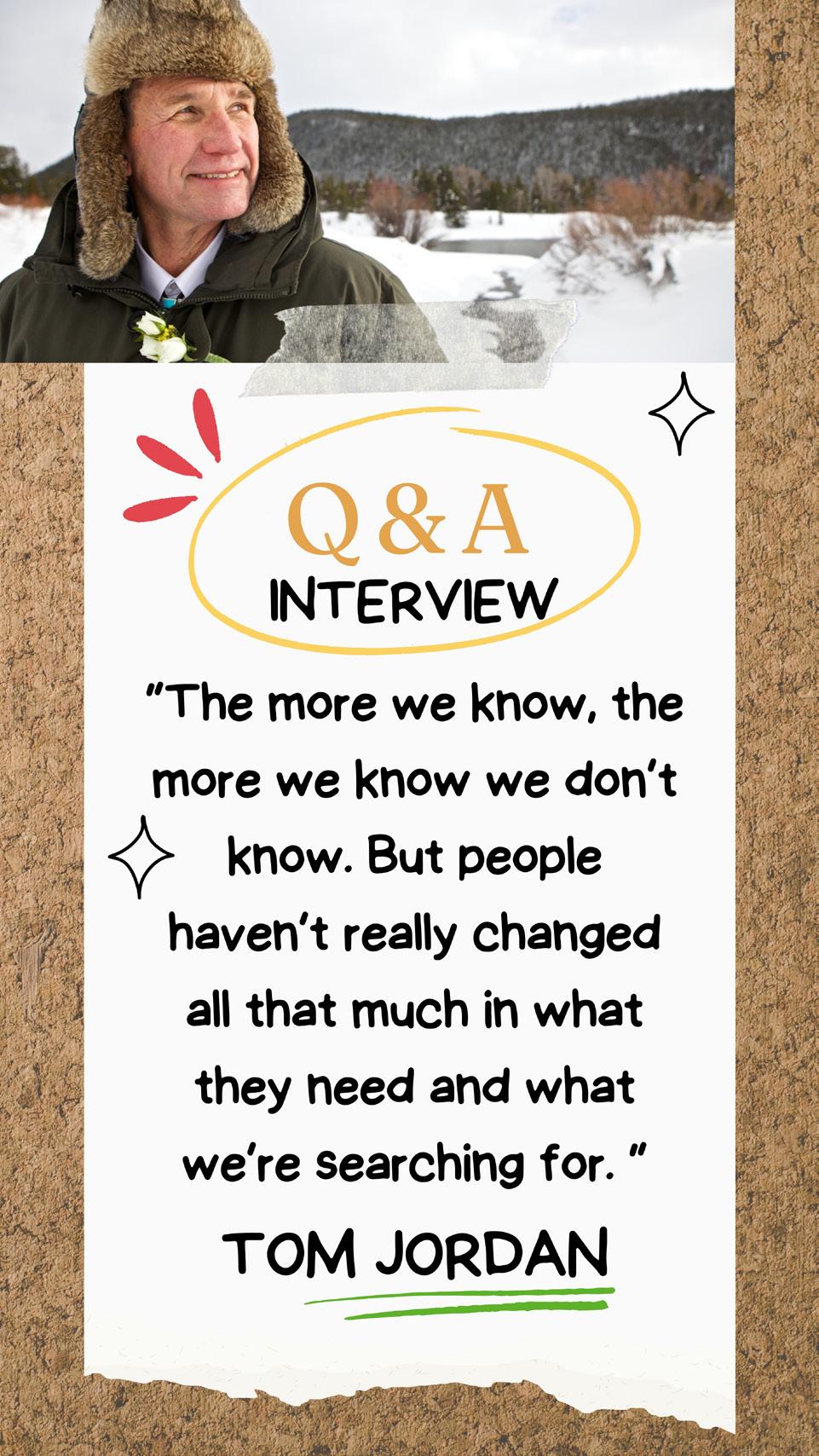
BRIAN: Well, here we are Tom! The question I wanted to start with today was, tell me, how long have you considered yourself a follower of Jesus?
TOM: As long as I can remember.
BRIAN: So, you grew up in a Christian home then?
TOM: Absolutely
BRIAN: Okay. Well, tell me a bit about, faith wise, what it was like growing up.
TOM: One of my earliest memories was in the Presbyterian church of my grandparents in Duluth, Minnesota. I would have been about 4 years old. And there was the start of the service before the children were taken out to Sunday School. And I can remember this visual of the stained-glass windows there and watching the little motes of dust float through the
light and air. Of course, I was way too young then to have any comprehension of what was going on. Being in churches was just a part of normal life and I grew with it as life went on.
BRIAN: As a young kid, what did you sense or feel when you were in the churches you grew up in?
TOM: Early on, I learned how to not be hyperactive! To be still, not to fidget, not to talk too loud (Laughs). And you look around and you see old people snoozing, nodding off and just learned to operate with the rhythms of the church. And, of course, the church seasons, with Easter and Christmas. Thanksgiving also seemed to be a major part of the experience too.
BRIAN: What about in the home? What was faith like in the home?
TOM: It really was all my mother. I had a stepfather for a short period of time, that was while living on a ranch in Arizona. Faith wasn’t a big part of family life then. But, I don’t remember, for those years, if it was suggested to me or if I simply took it upon myself to walk into town on Sunday morning. (Laughs)
BRIAN: Tell me about growing up. When did you feel like your faith was maybe becoming your own?
TOM: I always took it as a truth – even from the get-go. Of course, as a teenager you begin to question everything. But the faith was just there and seemed to always be a part of life. Faith always seemed to just have a way of reinforcing itself through my life. Of course, I had many experiences in life when I said, ‘Wow, what a dummy I am!’ (Laughs) But of course, I should have known better. I did know better. But I never seriously questioned, at least the basics. It was like food, or air. It was just there as an essential part of life. The first thing I memorized was the Lord’s Prayer that I said before going to sleep. I must have memorized it when I was two or three. It was before I even had any memories and that was already a part of me.
BRIAN: In your career in law enforcement and also as a judge, how do you think that shaped your faith?
TOM: It gave me a place to practice my faith. There are a variety of reasons why people go into law enforcement but one of them is to give back to society. I believe it also has made me more empathetic. My belief is that if I were born with your genetic makeup or went through the experiences you went through, who’s to say that I wouldn’t do the exact same thing that you are doing? Who am I to judge someone in the criminal justice system from God’s point of view? That’s, fortunately, above my pay grade.
"Well, you try to fix things and there’s just a lot of things you can’t fix. I don’t think we know God’s plan in all situations, especially in crisis. ..."
BRIAN: Obviously times have changed quite a bit compared to those days when faith and Christianity was so predominant. That’s very true in Jackson. How has such major change since the times you grew up in changed your outlook on faith?
TOM: We do, we live in a time of great change. The boundaries of our knowledge, with every new bit of information, opens up a new boundary that’s wider. The more we know, the more we know we don’t know. But people haven’t really changed all that much in what they need and what we’re searching for.
BRIAN: As you’ve grown older, do you think you’ve become more comfortable in living with uncertainty with your faith and just leaving certain things in God’s hands?
TOM: It’s probably more uncomfortable! (Laughs)
BRIAN: Oh, wow, okay! Tell me a little more about that.
TOM: Well, you try to fix things and there’s just a lot of things you can’t fix. I don’t think we know God’s plan in all situations, especially in crisis. We may try to strive to fix a situation and it can maybe be insignificant or insignificant to what God’s plan is. It’s hard to know when to let things go and when to turn it over to God. And, at the same time, you go back and it’s easy to think, “If I had only done such and such…” (Laughs).
BRIAN: Tom, this is one question I had in mind. especially here in Jackson. I think there’s a lot of folks who come to Jackson low on hope and looking for hope. What do think our faith says about, maybe, a culture that has a certain sense of hopelessness?
TOM: Well, depending on how you look at life and how you value the Christian message, hope is abundant. And it lifts you up. It’s not bogged down in sin. Because, we don’t live in a perfect world and we’re definitely not going to be perfect. But we can hope and, through that hope, through the presence of God in our lives, be reassured.
BRIAN: Are there any certain stories or passages in the Bible that you’ve returned to over and over again, and say something like, “That’s the Gospel right there” or “That’s beautiful?”
TOM: It changes actually a bit, situationally. But Ecclesiastes, I would say, immediately comes to mind, and a certain passage I’m trying to come up with right now. But it basically says, what is the best people can hope for and do in this lifetime?
(Pauses) Yes, right here is one of them in Ecclesiastes 3:12. But it’s really, in general, the whole book of Ecclesiastes.
BRIAN: Interesting, because I would not think most people would peg Ecclesiastes as being their most hopeful of all books in the Bible, but certainly formative in the way it talks about meaning.
TOM: It’s the way it (Ecclesiastes) talks about living in the present. If we live in the past, that’s not too healthy. And if we live and plan in the future, the tighter who try to plan, the more assured you can find that your plan will deviate. So, I think that much of this book is written to put people in the here and now. And, that’s a good place to be.
BRIAN: What about the New Testament or words of Jesus that you return to?
TOM: My Bible is a “red-letter” Bible. And I’ve found that sometimes, when I have trouble getting to sleep, that I open the Bible up and look for the words of Jesus. I’d say the red letters do mean something more to me than if it were maybe something Paul said, for instance. And even now, sometimes opening up the Bible it surprises me how much I can find that’s still new. It’s like, where did this come from? (Laughs) This answers what I’ve been puzzling about. And, I guess maybe to answer the edges of one of your questions from before about God speaking to us, from time to time I’ll get into a situation when I do feel pushed to do something I don’t want to do. Oftentimes, I can think of all sorts of reasons why I don’t want to do it. But I’ll get a push. And it’s always been valuable, only with the help of hindsight, to follow.
BRIAN: Are those the nudgings of the Holy Spirit, do you think?
TOM: It’s more like a swift kick! (Laughs). I won’t get into too many details, but there are times when I’ve done something that was illogical at the time, had no reasonable basis, and I was compelled to do it. And, it’s only in retrospect, I look and I say, “Thanks God! I think!” ✝
Iwas blessed to grow up with a mother who had a strong faith. With whatever was happening in my life she would tell me to have faith and believe that I would get through it. When I was about 12-years-old I began to question her—-not her faith, but the doctrine that she followed. There were just things that did not seem to fit with Scripture. My mother had an open mind. She could hear what I was saying, and often agree, but could never examine the religion she adhered to. If anyone in the extended family left “the church” it was as if there was no hope. I was reminded nearly every Sunday that you needed to be “worthy” to participate in this or that. Frankly, I never felt I could measure up to that standard and so carried guilt, and even some shame.
Upon leaving home the entire world was thrown in front of me with too many choices and distractions, and I began to justify a lot of them as okay. Underneath it all I knew God was present and I knew I was letting Him down. Eventually I began to see that life was not going as I had planned. There were too many paths to take. I was not taking the “narrow path that leads to eternal life”. With disappointments and heartaches, I knew I needed to become honest and authentic about my beliefs and who I was.
One day, a dear friend invited me to attend church with her. At the end of the service Pastor Dan Abrams announced to the congregation that as they went out into the week to “remember that you are loved” I could hardly believe what I heard. “LOVED?” Yes, “LOVED”. I left feeling hope and a new direction. I thrived on classes offered at that church. I believe it is hard to grow one’s testimony in a vacuum and that learning only comes when we “show up”.
Later, I picked up the book “The Counselor “ by A.W. Tozer and began to learn about the Holy Spirit. I was amazed! I was in love! I could surrender and let God change me! A few years later I needed to make an important decision. It was painful and I had agonized about which way to go. The next morning, I confronted it. I sat with my head in my hands weeping. I felt the Holy Spirit come over me, and then it became clear. What happens when the Holy Spirit speaks is that we “hear” with a special ear of faith. It is distinguishable from simply hearing what I want.
After this, I was convicted. What was difficult to change now became clear. I desire what God desires for me. I have learned that I have the regeneration of the Holy Spirit in God’s Grace. Amazing Grace! I want to be obedient. No more rebellion and thinking I know best. This has led to a beautiful transformation. I have peace, the peace that only comes from God. Every day I invite the work of the Holy Spirit to be instrumental in my life. It is amazing. I feel truly led in small as well as in significant ways.
In later years, Pastor Paul Hayden opened the doors
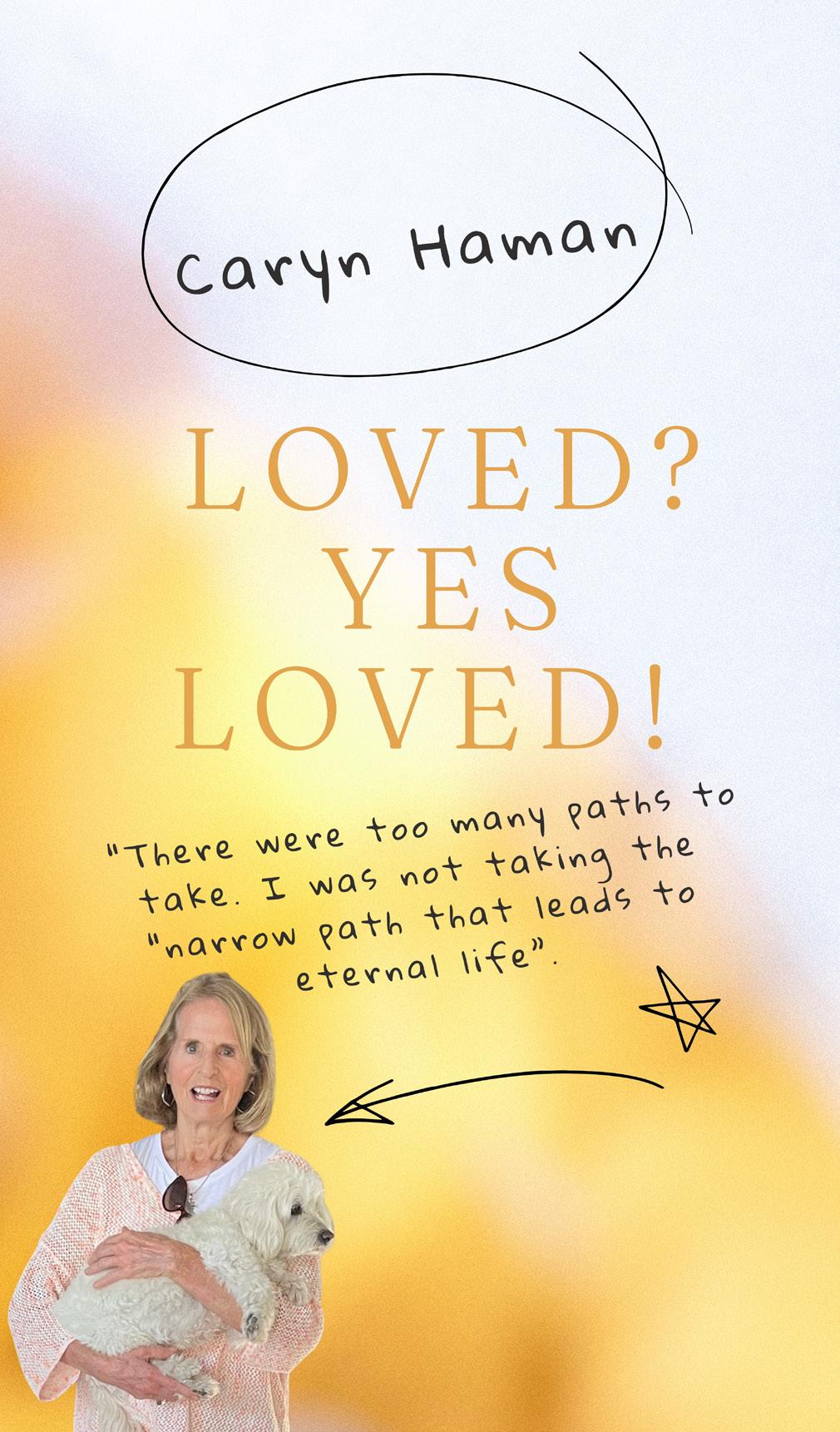
wide to the amazing God of love, mercy, and grace. I have been blessed to learn from our Pastors Ben Pascal and Tammy Mitchell. The pilgrimage trips that PCJH has led to the Holy Land had a major impact on my transformation. To walk where Christ walked, to see where he was born, crucified, buried, and resurrected, and to see scrolls and stones of written evidence left no doubt. I had been longing for a reaffirmation of my baptism, a renewal of faith in what I now knew was true. On my third trip to the Holy Land the time was right. I came out of the water and truly felt renewed in every way.
I have struggled writing this. How can one really explain to others the powerful working of the Holy Spirit? Words are inadequate. It the work of the Spirit. ✝
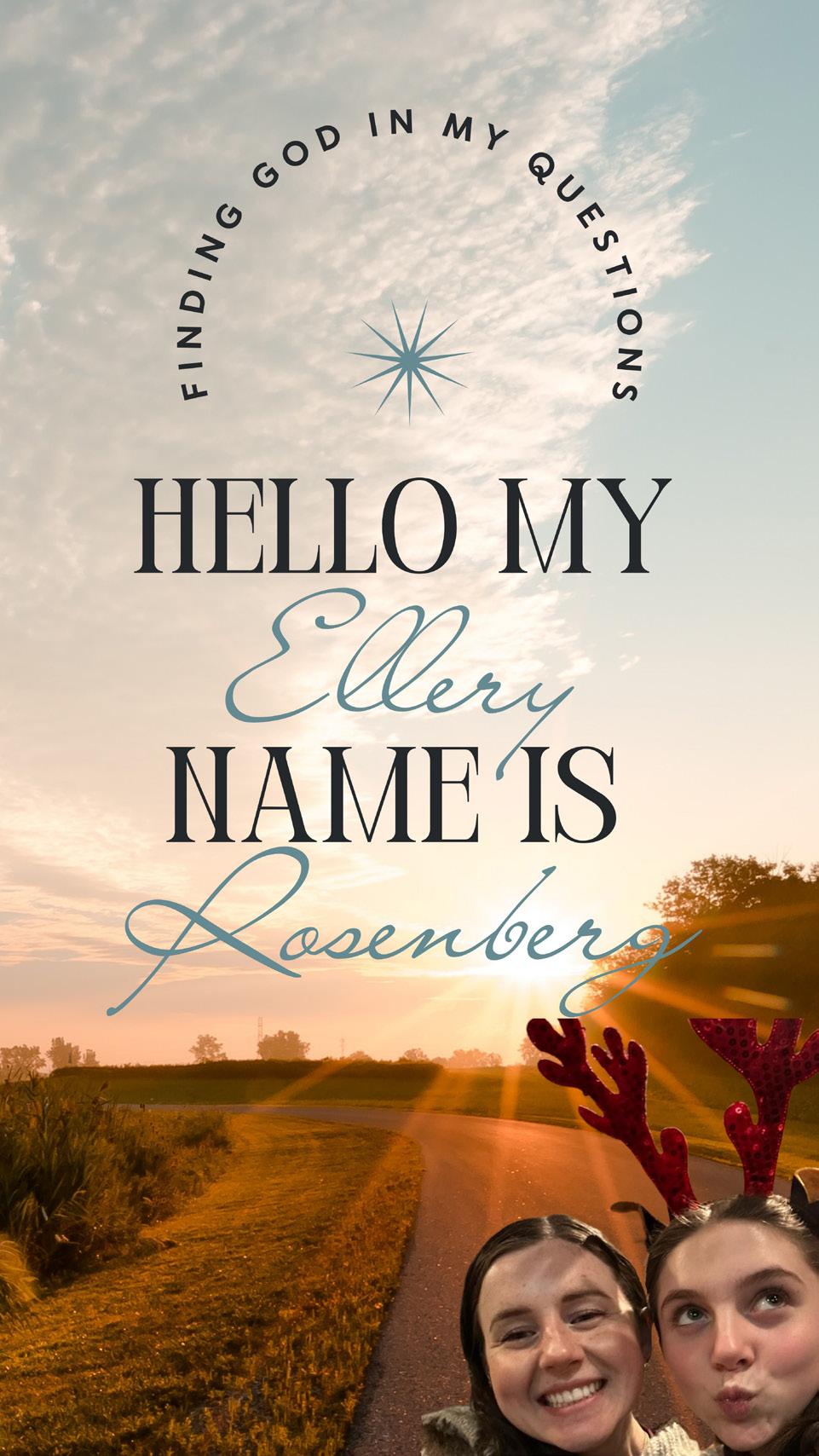
IAM A FRESHMAN AT JACKSON HOLE HIGH SCHOOL. I’D LIKE TO SHARE MY TESTIMONY WITH YOU. I HAVE ATTENDED CHURCH AND LEARNED ABOUT JESUS SINCE I WAS BORN.
As I got older my family got busier and we went to church less and less. Around sixth or seventh grade was the lowest point in my faith. At Young Life camp during my one-on-one conversation with Megan Walker, I confessed that the year-and-a-half prior to that time I had questioned God's love for me and questioned if God was even real. But at camp that year I felt God strongly. It was undeniable that he was real and his love for me was real.
Once we got home Megan and I set up a plan that would help me grow and strengthen my relationship
with Jesus. This included going through confirmation class at PCJH, and I personally committed myself to attend church as frequently as I could even when that meant going “alone”. But the reality was I was never alone at church because of the community we have at PCJH and because Jesus is always with me. In Psalm 46:5 we read, “God is within her, she will not fall”.
God is my savior. He created my amazing family and friends that enrich my life everyday. He created this beautiful place I get to call home and he has an amazing plan for who I am meant to be and where I am meant to go. He takes away all of my burdens and saved me from sin. He provides delicious food and a warm house to live in.
For me, Young Life has been a huge part of my journey, as well as both Megan and Liz Collins. My church family at PCJH has especially helped me through some of my hardest times. This summer I found comfort at church after my grandmother passed. I felt so supported by the congregation in prayer for my family and I. Although Young Life helped me start my walk in faith, activities like confirmation class, youth group, and Fellowship of Christian Athletes (FCA) have helped me continue my journey with God. If you would’ve told me I would be this close with God two years ago during that time at Young Life camp, I would’ve called you crazy!
I am a very literal person so putting my faith in God wasn’t something I completely understood at the time. My advice if you feel a similar way is to ask God through prayer to show you he is with you and working in ways you may not even realize. Megan and I prayed about this together and within the next few weeks I felt God and saw Him working in my life for the first time.
If you are ever questioning God's existence, just know that this isn’t bad or wrong or something to be ashamed of. The fact that you are questioning means that you’re looking for God and that is a great place to start. One of my all-time favorite verses is Joshua 1:9: “Be strong and courageous. Do not be afraid; do not be discouraged, for the Lord your God will be with you wherever you go.”
Always remember that God is with you, no matter what ✝
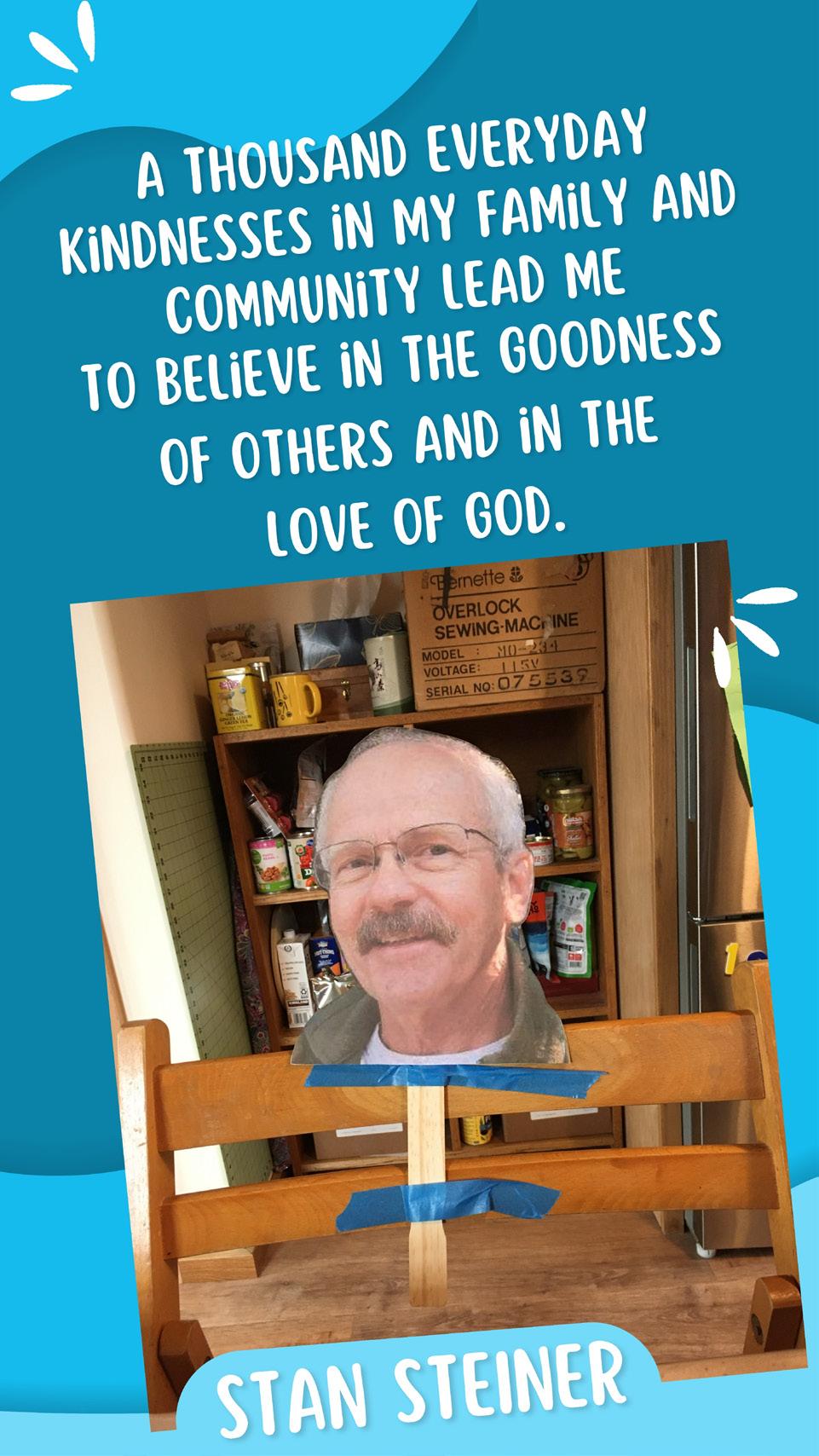
I’ve come to understand my faith through my relationships with others who felt a presence of God. A thousand everyday kindnesses in my family and community lead me to believe in the goodness of others and in the love of God. I need to be part of a community as much as I need fresh water and air.
My family was a small village unto itself. Mom and Dad had five boys within the first eight years of their lives together. My two sisters then came along, followed by one more brother. Our immigrant grandparents originally came to farm the deep, black Dakota loam. I, myself, was baptized in the German-speaking Saint Placidus Catholic Church in rural Mott, North Dakota. Our parents raised us in the Catholic faith and taught us the Golden Rule of treating others as you want to be treated.
Our house was a gathering place for adults and children. Everyone in the neighborhood called my mother “Ma.” She offered a listening ear to everyone, had a pot of coffee ready all day, played a competitive game of pinochle and was a wonderful cook. No one was ever turned away. We just added another
place at the large table my father, a carpenter, had made himself. When folks asked him how many kids he had his answer was always, “two and half dozen.”
In our family, money was always tight; some days we sat down to nothing but a large bowl of noodles. But it was served with love and gratitude in our hearts because we had something to eat and time together. Nothing went to waste. Friday’s soup was made from the week’s leftovers. Ma was famous for her baking. Often after a school dance or sporting event our buddies asked if my mom had baked today. She proudly served them fresh baked goods, especially caramel rolls. Even if she had already gone to bed, Ma got up to fix food for everyone. She modeled a sense of community every day. My friends who shared her cooking can still recall those times.
Growing up in a large family had challenges, but far more benefits. We were expected to work hard and help raise the younger siblings, and there was always someone to play with. We were free-range kids, but all of their moms and dads looked out for us, too. My siblings and I attended the same grade school, often had the same teachers, and shared the experience of having the same kids in our class from 1st through 8th grade. We were a close-knit family and a tight community.
Things changed when we got to high school and our parents gave us a choice between Catholic or public school. Although Mom and Dad couldn’t pay the tuition, I wanted to go to the same school as my friends and paid for it with my paper route earnings. Gradually, I became more aware that my choices influenced my faith. My entire education came from Catholic schools, including my university undergraduate degree. I was an altar-boy, sang in church choirs, and joined the Columbian Squires, which was similar to Boy Scouts but with a religious focus. I began to think deeply about faith and what I believed.
One of my professors at my Catholic university influenced me in pivotal ways. Lee always had something positive to say about me and others; it felt good to be around him, just like family. I fell in love with children’s literature in his class, made my acting debut under his direction, and had many meaningful discussions about faith, diversity, death, and the celebration of life. Through his actions, I learned to look out for the underdog and get to know my students so meaningful learning can take place. For Lee, the glass was always full. He created circles of community wherever he walked and I wanted to be like him. These days, I sense the love of Jesus at PCJH and it feels like family to me. Here, I can work and serve to create a circle of community in the way my parents and mentors taught me. And we all need community. ✝
STAN first arrived in Jackson as an elementary teacher in 1978. After 46 years teaching elementary through college level students he retired as a professor from Boise State University in 2017. Now he's busy checking items off his bucket list.
Its earliest congregants worshiped together in 1730. During the Revolutionary War, the church served as a storehouse for ammunition and supplies for patriots. The beautiful, historic sanctuary was destroyed by British troops in 1779, rebuilt in the 1780s, and hasn’t changed much in appearance since—white clapboard siding, a steepled belfry, and leaded glass windows. A graveyard stands adjacent with worn granite markers arranged in wobbly rows. I played hide and seek, and tag in that churchyard with the preacher’s kids. We crouched behind memorials engraved with the names of long-dead devotees: Obadiah, Hannah, and Ebenezer.
My parents, three sisters, and I took up an entire wooden pew on Sunday mornings. I loved the hymns pumped out of the bellowing pipe organ. I learned how to follow the lines and stanzas in a hymnal, and listened to my father’s deep baritone harmonizing the melody. I observed him as he bowed his head in prayer. My sisters and I attended Sunday school, sang (reluctantly) in the youth choir, and were giddy angels in the nativity pageant on Christmas Eve. Later we joined the youth group on Sunday nights, and at 18, we became confirmed church members. Singing, praying, and sharing life in this way with family and friends felt good. A seed was planted.
Later, as an undergrad at Bowdoin College, I sporadically attended the Maine Street Baptist Church in Brunswick, Maine. I chose that church because I could easily walk to it (I didn’t have a car.) A lasting memory of that congregation is of a kind older woman who hosted a group of us students in her home for Sunday dinner after service. As a skinny distance runner, good food was surely the way to my heart. That period of my life was defined by studying hard and running harder.
In my junior year of college, I yearned for change. I applied to the Twelve College Exchange Program; essentially a domestic study abroad program. I packed up my running shoes and skis and moved to Hanover, New Hampshire, home of Dartmouth College. I went there seeking anthropology courses and the chance to compete on a Division I track team, but I found much more. Two teammates were involved with the on-campus Christian ministry group. They invited me to join them, and soon I was enraptured by this vibrant, powerful presence on campus. It wasn’t long before I regularly attended worship, Bible studies, and retreats. I was 20 years old, and for the first time, my faith felt more important than anything else. I prayed to a living God who wanted me, loved me, and had plans for me. The world felt bright, new, and full of possibility. One sparkling morning, at the start of a New England summer, I was baptized by immersion in Lake Sunapee, surrounded by old-growth forests and rolling mountains. My faith and my relationship with God became my sails and my anchor.
I read the Bible, and books by Christian authors like CS Lewis. I sought out Christians so I could learn from them. My faith was a close and constant companion through the joyful, challenging years of establishing a career, marrying, building a house, raising a child, and mourning the loss of loved ones. I am grateful to all the churches
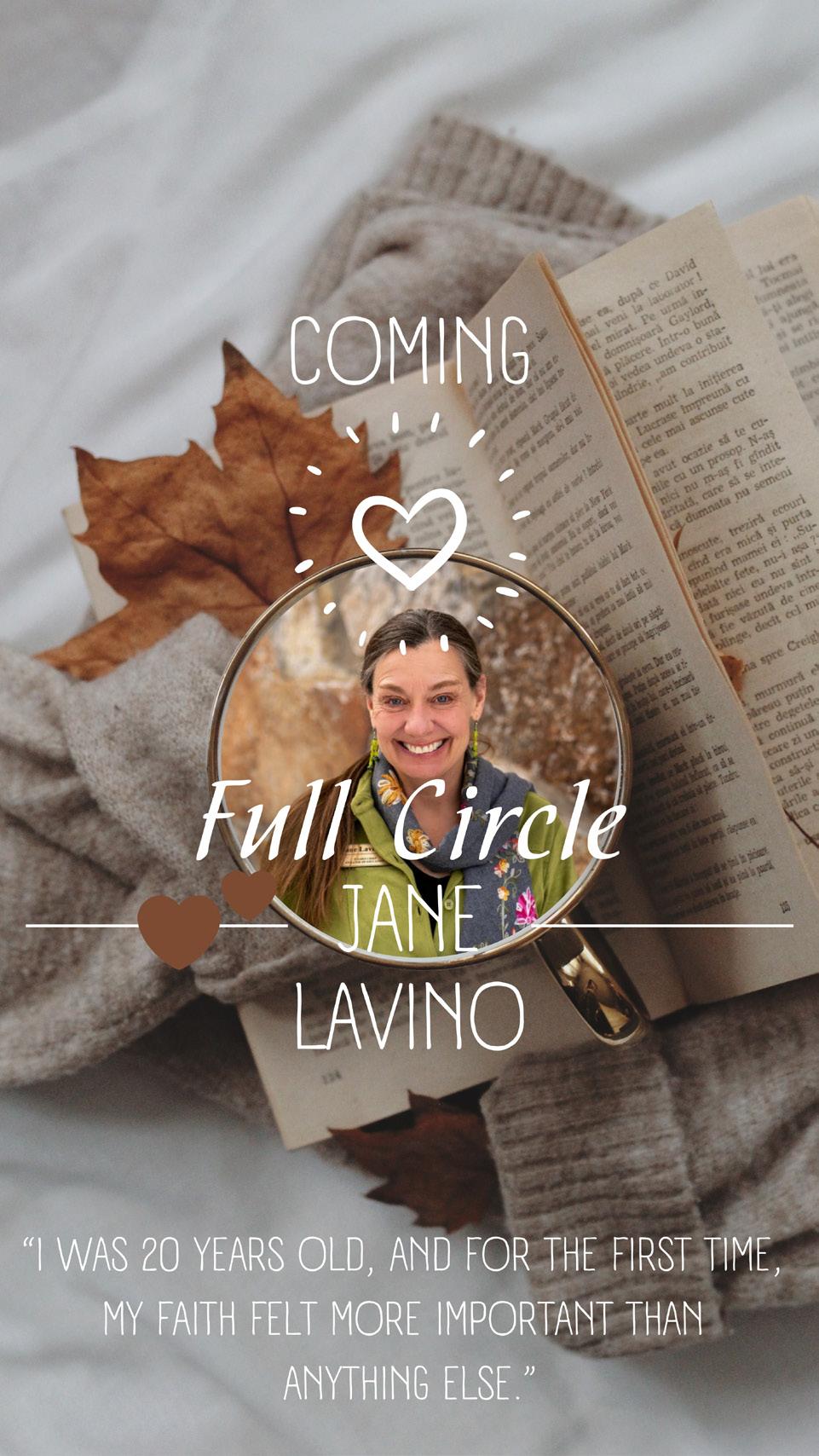
that preserved me: a Unitarian Universalist Fellowship, a Redeemer Lutheran Church, a Quaker Society of Friends, and a Baptist Church. Each congregation gave me something valuable for my journey. My husband and I moved to Jackson after summers working in Yellowstone. We became members of the Presbyterian Church of Jackson Hole at its inception in 1992. Joining a Presbyterian church felt like completing a circle, since that’s where I started. I’ve been with PCJH for 30 years now, far longer than at any other church. This place, its programs, and its people nurture me, challenge me, and guide me. Over time, I’ve grown from being purely a “consumer” of church to a contributor at church. Increased involvement helped me meet more people, share my gifts, and fully receive the gifts of others. Thanks be to God for the compassion, kindness, wisdom, generosity, and love this body of Christ has shown me. By the grace of God, I look forward to continuing this journey of faith with all of you. ✝
Art in Jackson, WY.
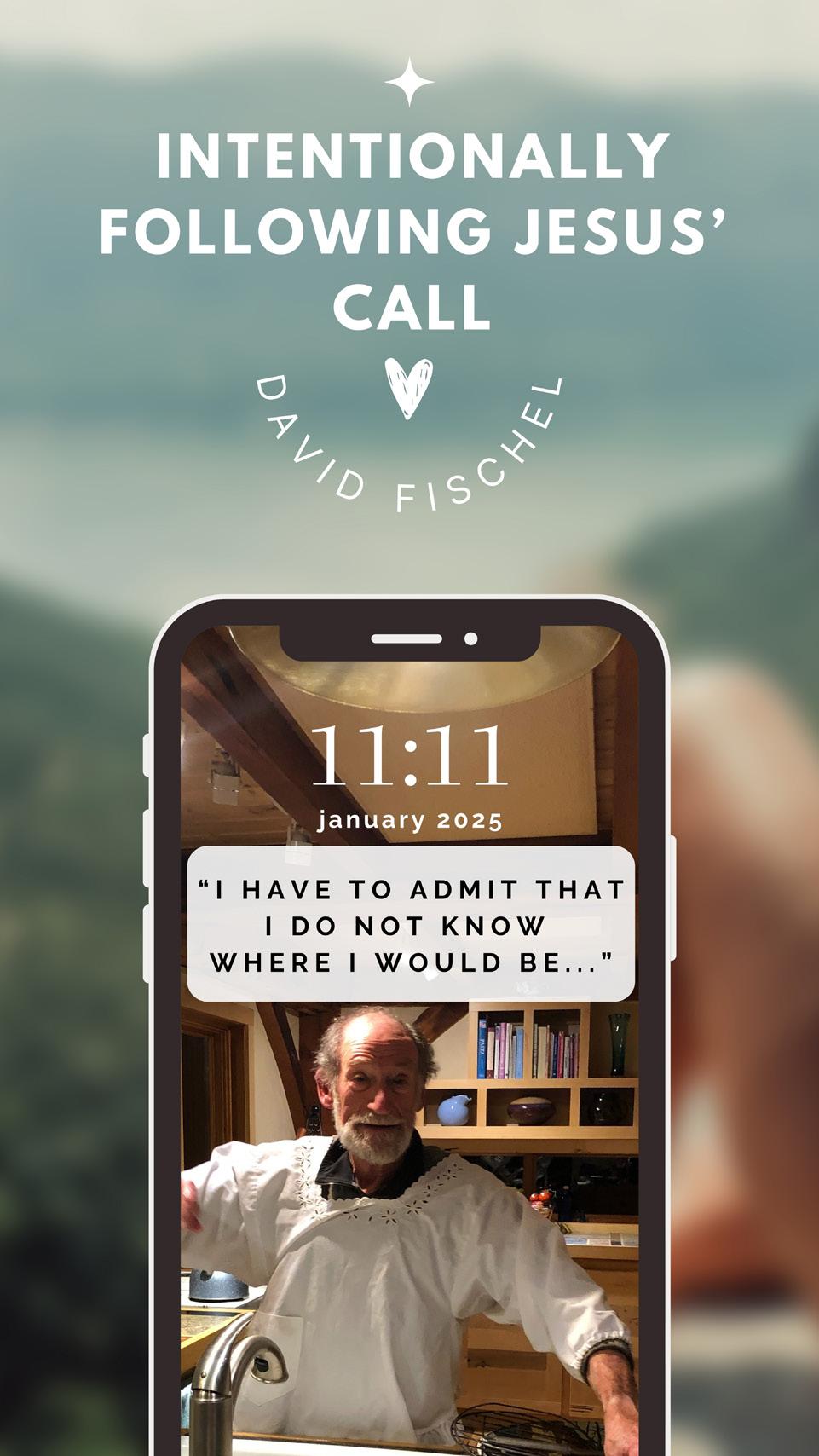
Ihave to admit that I do not know where I would be in terms of my faith had I not been raised by parents, who were believers and who made sure their two sons were grounded in the teachings of the faith. My mother, having herself grown up in a family of believers, had an unshakeable faith and a servant’s heart.
My dad’s story couldn’t have been more different. He grew up, the youngest of four siblings, in a Jewish family in Mannheim, Germany. In 1933, as a 15 year old, my father was expelled from school for refusing to return the Hitler salute, was later jailed as an “enemy of the Third Reich”, was scheduled for a train ride to the Dachau death camp, was miraculously released from prison, and after some months escaped Germany and sailed for New York. A Christian aunt, who had been living in the US for some time, took my father to church, where my father turned his life over to Jesus, was baptized, and, fortuitously, met the love of his life, the woman who would become my mother.
My parents provided us, my brother and me, every opportunity to learn about and grow in the knowledge and love of Jesus: Sunday School, Sunday morning worship service, Sunday evening service, midweek prayer meetings, vacation Bible school and church camp in the summer. Looking back now to that time, I have the
sense that, although God’s love was preached, there was, at least in my memory, a certain emphasis on being sure of one’s eternal fate: eternity in heaven with the Lord versus everlasting punishment in hell. And, therefore, I’m quite certain that my coming to Jesus as a young lad derived, to a large extent, from a heartfelt desire to be assured of a place in eternity.
For years after that, my faith was on cruise control, following the path of least resistance. It took me some time to embrace the truth, as Paul said in his letter to the Phillipians, that if I really loved Jesus and I wished Him to become more real to me, I needed to “work out” my salvation.
Obedience is one of those disciplines. Clarence Jordan, an African-American pastor and mentor of Millard Fuller, founder of Habitat for Humanity, famously said that Christians will “worship the hind legs off Jesus, but [won’t] obey Him”. Jesus says, “If you love me, you will obey what I command.” (John 14:15). What does He command? Love God. Love your neighbor. Whatever we do “for the least of these”, we do for Him.
Nearly three decades ago, my wife and I felt a need to become more intentional in obeying Jesus and caring for the least of these. I say “we” because my wife, Melanie, was all in. We each took a three-month sabbatical from our jobs and attended a Spanish language school in Barcelona. We did a training in New York City with the United Methodist Church, which had a Volunteers in Mission program that connected volunteers like us with service projects around the world. We’d already been involved with Habitat for Humanity at home, so it was an easy step to volunteer for Builds Beyond Our Borders.
In the early 2000s we spent a month providing healthcare to Mapuche youth at a residential school run by the United Methodist Church of Chile, the first healthcare providers to serve at that school. We’ve participated in ten Habitat builds abroad, mostly in Central and South America, but also one in Central Asia and one in Poland. Serving as the hands and feet of Jesus can be physically hard, and the living conditions can be a bit iffy, but we always return home feeling blessed by the experience.
There are always unexpected moments of grace.
Some years ago we participated in a build in a small town on Guatemala’s beautiful Lake Atitlan. Melanie and I always preferred to walk to and from the work site, rather than take a minibus or “tuk-tuk”. On our walk we would pass two little girls, wee lasses 3–5 years of age. We would greet them, and, initialy, they would respond with giggles, but keep their distance. Soon they figured out our schedule and would be waiting for us. Excited to see us, they’d start wiggling and giggling, literally vibrating with excitement, and waving their arms. On our very last day, they ran out into the street and wrapped their arms around our legs in big hugs. “But to each one of us grace has been given” (Ephesians 4:7). ✝
JOHN 16:33 SAYS, “I HAVE TOLD YOU ALL THIS SO THAT YOU MAY HAVE PEACE IN ME. HERE ON EARTH YOU WILL HAVE MANY TRIALS AND SORROWS. BUT TAKE HEART, BECAUSE I HAVE OVERCOME THE WORLD.”
God gave people a love of reading a good story, something that draws you in, pulls at the heartstrings, something you can connect to emotionally. The Bible is a wonderful example of Him using stories as a platform to help us learn more about Him while relating to people who existed so long ago.
Entering college, I sadly fell into a mindset that there were good and bad testimonies. A “good” testimony was extremely captivating, sometimes involving a near death experience or overcoming an addiction. People met God through these circumstances and ended up having a huge transformation overnight that led to being on fire for the Lord. I don’t want to minimize these kinds of testimonies because I truly believe they are amazing and God can work in amazing ways. I simply felt like I had a “bad” testimony.
I grew up in the church and learned about God from a very young age. He has always been present in my life and my faith solidified as I grew older by going to youth groups in middle school and high school, before moving on to a Christian college. I recall at a very young age (maybe four or five) having my mom’s friend sit me on her lap and recite a prayer repeating after her for Jesus to come into my heart and that I claimed Him as my Savior. It was very anticlimactic and not a remarkable story to keep people on the edge of their seats. Obviously, I was very young and at the time didn’t fully understand the importance of that prayer or what it truly meant, but I fully believe that I was saved then and I know with certainty that God has been a constant in my life ever since. He has placed amazing people in my life who have allowed me to learn more about Him and draw nearer to Him.
All of this to say, I have faced my own trials as a follower of Jesus Christ. In John 16:33 Jesus says we WILL face them: no ifs, buts, or maybes. One of the biggest challenges for me has been living with a deeply rooted belief of unworthiness, of never feeling good enough, of putting others above myself because I truly feel I am undeserving of love. It’s like having a pair of glasses that you use to see the world more clearly, or in this case, to see Jesus more clearly. Everyone has a different prescription because they grew up in a different home environment. Events in their life cause their eyes to focus differently, to need a different prescription from your own. Well, my glasses are filthy. There is this thick filmy residue of unworthiness that I have tried to scrub off, but it’s really stuck on there. By the grace of God, I’ll be able to wipe it off for a minute here or there and get glimpses of what I’m supposed to see, glorious glimpses, but then the residue comes back. I’ve been through a long journey of trying to discover my worth as a child of God and to clear the residue of unworthiness off of my glasses in
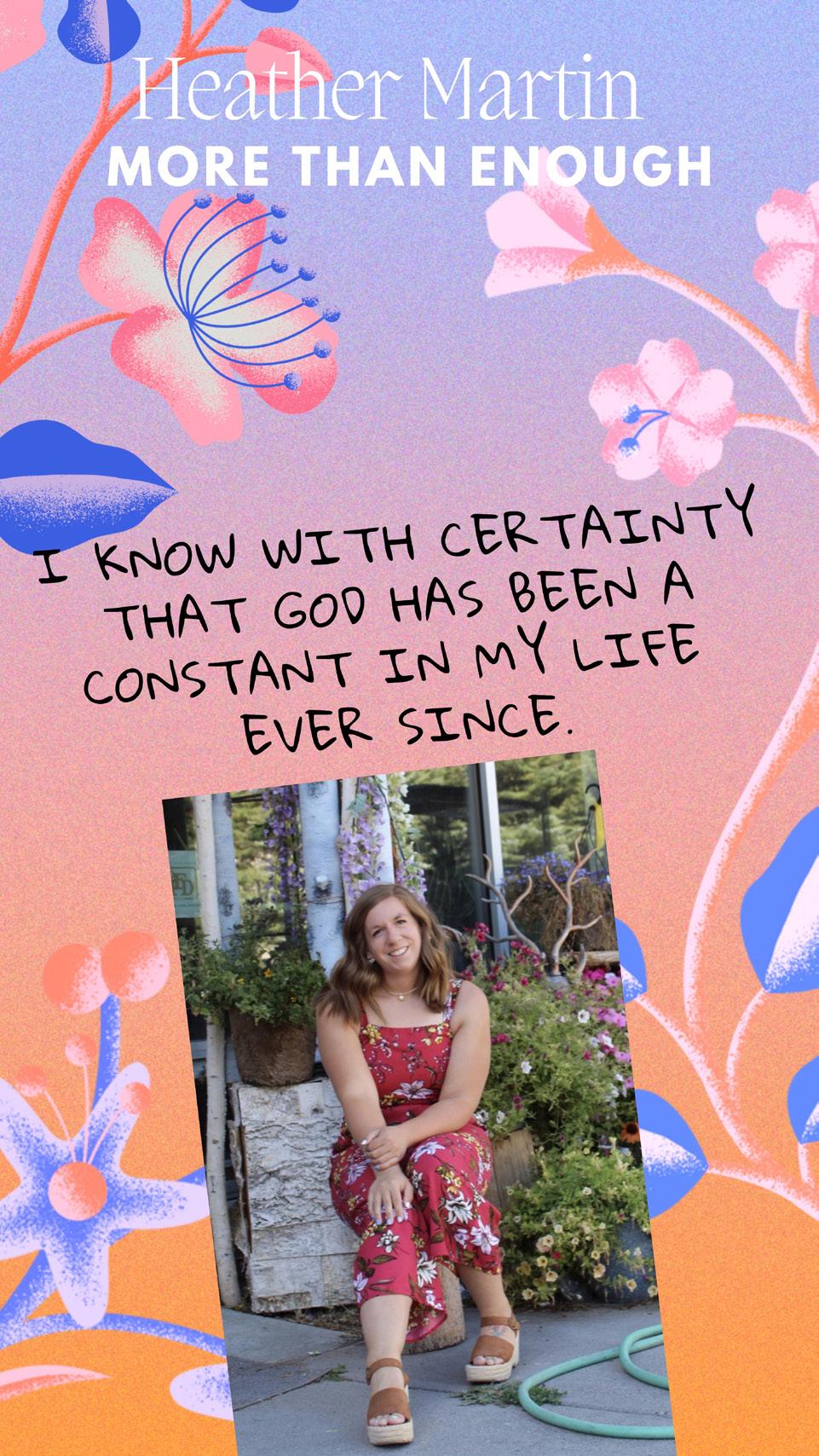
order to see God more clearly. This is a lifelong journey, but God is holding my hand the whole way through. It brings me so much joy that along this journey I have also been able to come full circle and work with children in this very church through Little Lambs, JOY Summer Camp and Youth Ministries by teaching them about Jesus and His love for them and by helping to form a small foundation of coming to know the Lord for themselves. Because that is precisely what allowed me to really come to know God growing up within the church. I am now capable of pouring into them and helping them see their value as a child of God.
Since taking on that mindset in college, I have learned that there are no “good” or “bad” testimonies: it’s all God’s handiwork in our lives and that is always GOOD. Just having a testimony and giving your life up to God is a beautiful, wonderful thing. That is all God wants. It is enough. ✝
HEATHER worked at Joy Summer Camp which then led to her becoming a teacher at Little Lambs Preschool. The mountains are initially what drew her in, but the people are what made her want to call Jackson her home.

Pastoral Staff
Rev. Ben Pascal bpascal@pcjh.org
Senior Pastor x 101
Rev. Tammy Mitchell tmitchell@pcjh.org
Associate Pastor x 104
Office Staff
Brian Bultema bbultema@pcjh.org
Church Administrator x107
Cindy Dahlin cdahlin@pcjh.org
Church Administrator Assistant x109
Ally Kiefer akiefer@pcjh.org
Communications Coordinator x102
Program Staff
Laura Huckin huckin@silverstar.net
Worship & Music Coordinator x123
Amanda Lack alack@pcjh.org
Little Lambs Preschool Director x111
Megan Walker mwalker@pcjh.org
Youth & Young Adult Ministry Coordinator x124
Tiffany Tate ttate@pcjh.org
Children's Ministry Coordinator x103
Ruling Elders
2025
Sarah Romorini Mission
Cameron Page Children's Ministry
Brad Herman Congregational Life
John Scott* Finance
2026
Clerk of Session: Ken Blount
Karen Unruh Ascent Ministry
Judy Kaelber Adult Ministry
Alan Lund* Personnel
Patty McDonald Assimilation & Nomination 2027
Kacy O'Hare Stewardship
Sierra Fulton Youth Ministry
Becky Kimmel* Worship
Hello! My name is Kacy O’Hare, and I grew up in West Los Angeles. I’m a Northwestern University grad, and went to USC for law school. I worked in both private practice and as an assistant city attorney for the city of LA. We belonged to Brentwood Presbyterian Church, where I was a co-elder for children’s ministries. My husband Scott and I moved to Austin, TX in the 90’s, lived in Toronto for four years, then headed back to Austin with our two boys, Jake and Patrick.
We’ve spent summers in Jackson since 1999, and the majority of our time here since 2013, enjoying hiking and skiing in God’s beautiful creation! We’ve attended PCJH since 1999, and our sons enjoyed summer vacation bible camps and youth groups. Scott and I were blessed to share in the church’s 2018 trip to the Holy Land. I have served on the Stewardship Committee for a number of years, and am so impressed at how generously our congregation shares its time, talent and treasure to support the many ministries of PCJH. I look forward to serving as the new Stewardship Elder.
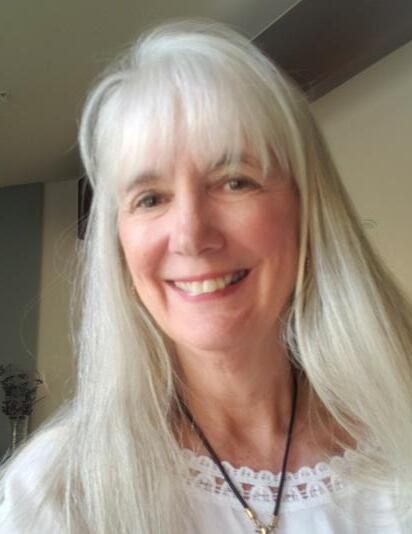
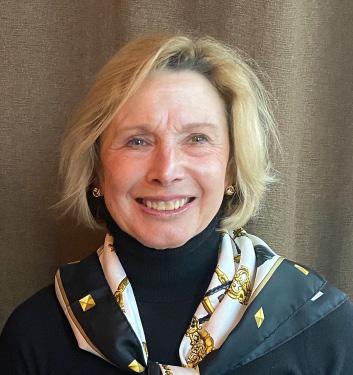
Hello PCJH Family! I have recently been called to serve as a deacon at PCJH, an opportunity I readily accepted as I feel this is a calling from our Lord. I believe serving one another is our purpose in this life. My life work has been committed to this end as I pursued an advanced degree in clinical social work in my twenties to serve others in need. Early in my career, I worked with adults who had experienced sexual assault or sexual abuse. I then started a general counseling program at the same non-profit organization, eventually serving as the Executive Director. I was in private practice for several years before setting up and administering a behavioral health crisis response system for the nine-county region of the eastern shore of Maryland. In 2015, my husband, Roby Hurley and I moved to Jackson, a place we had spent many a September and only dreamed of living full-time. After test-driving many church services in Jackson, PCJH felt like the right place for us to continue to grow in our faith. We have come to love our PCJH time and family. I look forward to serving in the capacity of deacon. Thanks to all for your support in providing the confidence in me to serve in this capacity.
Teaching Elders: Rev. Ben Pascal & Rev. Tamara Mitchell
Deacons
Class of 2025
Dorothy Neckels*
Karlene Owens
Danny Weber
Yvette Werner
Class of 2026
Ponteir Sackery*
Brian Bultema*
Sandra Guido Fernandez*
Peter Lori
Class of 2027
David Troxel
Nancy Fauntleroy
Tom Segerstrom*
Nancy Lori*
I’m Yvette Werner. This summer will mark the 30th anniversary of my move to Jackson! I moved to Jackson from the East Coast, where I grew up and went to college. I am married with two children (ages 16 & 13) who are active participants in PCJH programming.
I’m looking forward to my role as a deacon and supporting our PCJH community in whatever ways I can. One way that I intend on using my background as a clinical social worker to support the PCJH community is by offering a grief support group that will begin soon. Please keep an eye on the announcements for when that group will begin. It is my honor to be able to give back to PCJH in this way.
